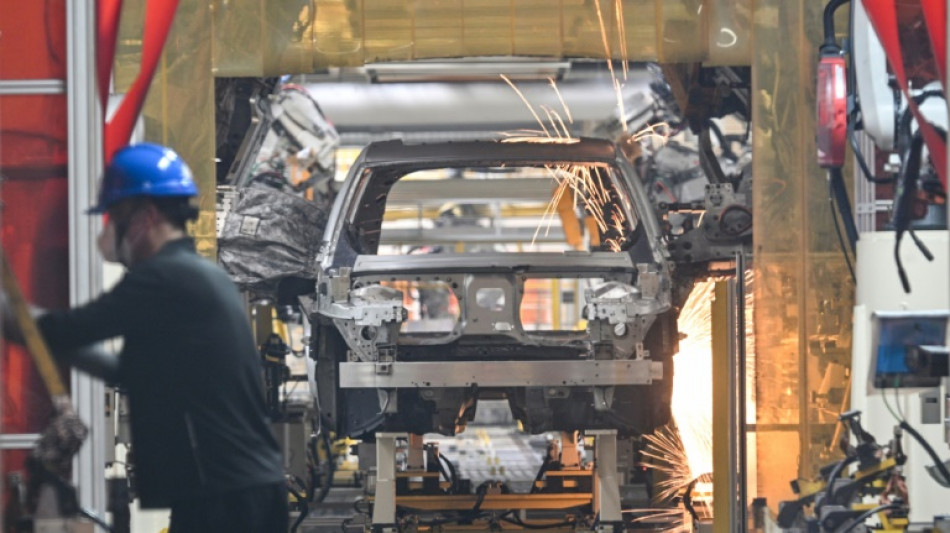
-
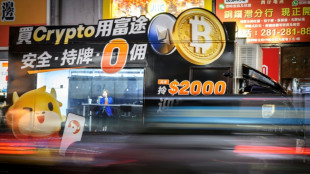 Asian markets mixed as bitcoin surges to new high
Asian markets mixed as bitcoin surges to new high
-
War-weary Ukrainians find solace by frontline lake
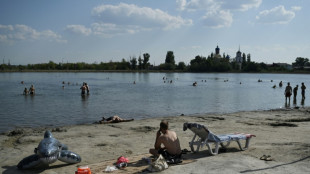
-
 Okinawa a reluctant host for US troops 80 years after WWII
Okinawa a reluctant host for US troops 80 years after WWII
-
Alonso's Real Madrid start La Liga with fresh energy

-
 Liverpool splash out to secure status as Premier League's top dogs
Liverpool splash out to secure status as Premier League's top dogs
-
Hong Kong court postpones closing arguments in Jimmy Lai trial
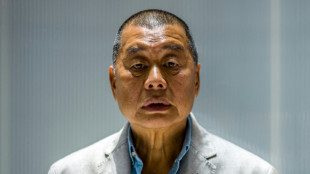
-
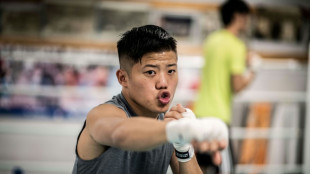 Top Japanese fighter retires to support comatose boxer brother
Top Japanese fighter retires to support comatose boxer brother
-
Boars, Butterflies or Bees? Public to name Papua New Guinea's NRL team

-
 Defending champions Sinner, Sabalenka reach Cincinnati quarters
Defending champions Sinner, Sabalenka reach Cincinnati quarters
-
Bolivia presidential hopefuls make last push for votes

-
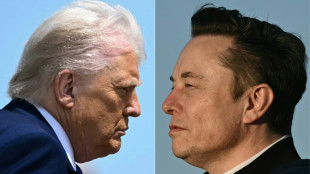 Trump orders space regulations eased in win for Musk
Trump orders space regulations eased in win for Musk
-
Trump warns of make-or-break chance with Putin as pressure mounts
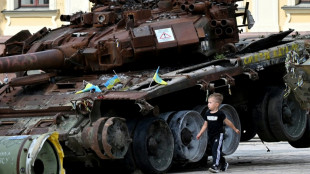
-
 From Snoop Dogg to Tom Brady, stars flock to English second-tier clubs
From Snoop Dogg to Tom Brady, stars flock to English second-tier clubs
-
Inside Trump's 'Alligator Alcatraz': detainees allege abuse in a legal black hole

-
 Scientists find surprising sex reversal in Australian birds
Scientists find surprising sex reversal in Australian birds
-
Taylor Swift sets October release for new album

-
 Sinner, Sabalenka sail into Cincinnati quarter-finals
Sinner, Sabalenka sail into Cincinnati quarter-finals
-
Oh carp: UK's Lammy on the hook after fishing with Vance without licence
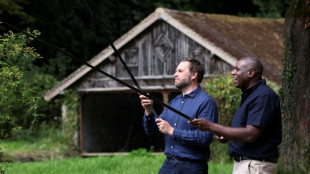
-
 Sinner shrugs off rain to dispatch Mannarino in Cincinnati
Sinner shrugs off rain to dispatch Mannarino in Cincinnati
-
Tainted fentanyl blamed for 87 hospital deaths in Argentina

-
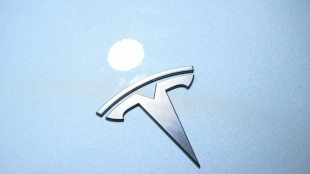 Eyeing robotaxis, Tesla hiring New York test car operator
Eyeing robotaxis, Tesla hiring New York test car operator
-
NBA approves $6.1bn sale of Boston Celtics
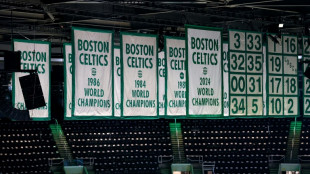
-
 PSG beat Tottenham on penalties to win UEFA Super Cup after late comeback
PSG beat Tottenham on penalties to win UEFA Super Cup after late comeback
-
Cowboys owner Jones says experimental drug saved him after cancer diagnosis
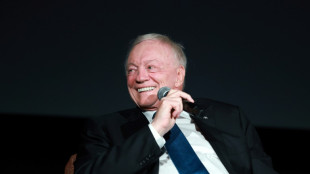
-
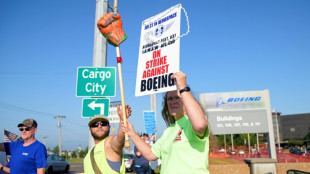 Striking Boeing defense workers turn to US Congress
Striking Boeing defense workers turn to US Congress
-
PSG beat Tottenham on penalties to win UEFA Super Cup

-
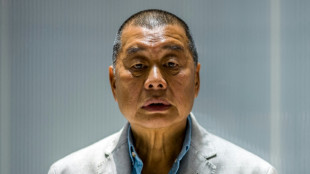 Hong Kong court to hear closing arguments in mogul Jimmy Lai's trial
Hong Kong court to hear closing arguments in mogul Jimmy Lai's trial
-
US singer Billy Joel to sell off motorcycles due to health condition
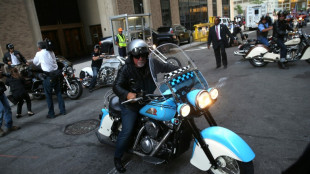
-
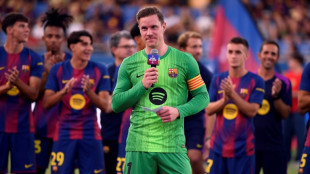 Barcelona's Ter Stegen validated as long-term injury by La Liga
Barcelona's Ter Stegen validated as long-term injury by La Liga
-
Storm makes landfall in China after raking Taiwan as typhoon
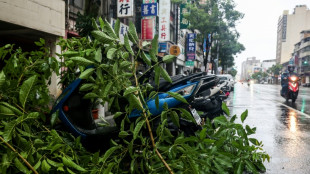
-
 Colombia buries assassinated presidential candidate
Colombia buries assassinated presidential candidate
-
Zverev finishes overnight job at Cincinnati Open
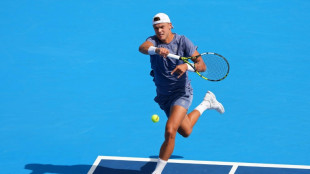
-
 Bukele critics face long exile from El Salvador homeland
Bukele critics face long exile from El Salvador homeland
-
McIlroy 'shot down' suggestion of Ryder Cup playing captain role
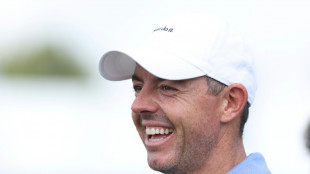
-
 'Water lettuce' chokes tourism, fishing at El Salvador lake
'Water lettuce' chokes tourism, fishing at El Salvador lake
-
Peru's president signs military crimes amnesty bill into law

-
 At least 26 migrants dead in two shipwrecks off Italy
At least 26 migrants dead in two shipwrecks off Italy
-
Root says Warner jibe 'all part of the fun' heading into Ashes

-
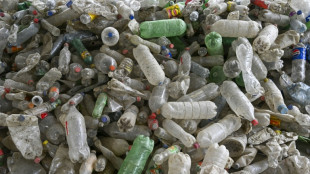 Plastic pollution treaty talks in disarray
Plastic pollution treaty talks in disarray
-
Trump eyes three-way meeting with Putin, Zelensky
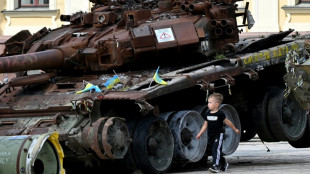
-
 'Viable' chance for Ukraine ceasefire thanks to Trump: UK PM
'Viable' chance for Ukraine ceasefire thanks to Trump: UK PM
-
Vance visits US troops during UK trip

-
 Premier League has no say on delay over Man City charges, says chief exec
Premier League has no say on delay over Man City charges, says chief exec
-
Trump names Stallone, Strait among Kennedy Center honorees
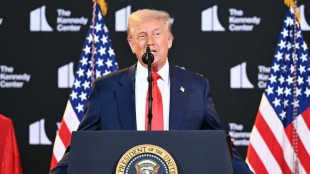
-
 Israeli military says approved plan for new Gaza offensive
Israeli military says approved plan for new Gaza offensive
-
Europeans urge Trump to push for Ukraine ceasefire in Putin summit
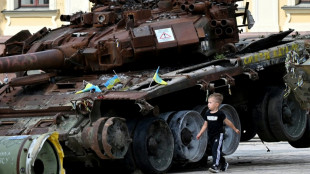
-
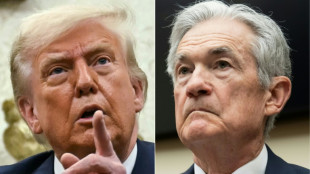 Stocks extend gains on US rate-cut bets
Stocks extend gains on US rate-cut bets
-
Venus Williams receives wild card for US Open singles

-
 Massive fire burns on mountain near western Canada city
Massive fire burns on mountain near western Canada city
-
Plastic pollution plague blights Asia
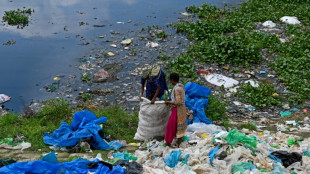

Foreign carmakers strive for 'China Speed' to stay in race
In fluid synchronisation, dozens of robotic arms picked up metal parts and welded them onto vehicle beds, as car skeletons gradually took shape and progressed along an automated factory floor near the eastern Chinese city of Ningbo.
Across the country, car models rolling off assembly lines like this have gone from concept to release in record time -- known in the industry as "China Speed", the envy of foreign competitors.
At EV firm Zeekr's vast Ningbo plant, advanced robotics and artificial intelligence have been leveraged at every stage of the manufacturing process to save huge amounts of time and money.
In the casting shop, a robotic arm that towered over the human foremen supervising it picked up a freshly made piece of aluminium and dunked it into a vat of water, sending steam hissing out, before passing the metal to another machine to cut and press it.
The factory still employs around 2,500 workers to do some delicate tasks and for quality control.
But the heavy lifting is done by hundreds of tireless robots, with some processes going on 24 hours a day.
And it's not just manufacturing that has been accelerated.
Zeekr has a research and development base in Sweden, which allows workloads to be shared across timezones. Its parent company, Geely, also owns Swedish automaker Volvo.
In the factory's car park, hundreds of gleaming, plate-less Zeekr 7X SUVs stood ready to be transported to dealerships.
"The future is our history," read a slogan above the entrance hall.
- 'Make-or-break moment' -
Factories and companies like this have set a new pace in the industry.
"We are at a make-or-break moment for established global automakers," a recent report by consulting firm Bain & Company said.
En route to the factory, AFP saw lorries carrying brand new Zeekr cars headed to Ningbo's huge port, bound for export to places like Australia.
The most innovative Chinese manufacturers spend less than a third of that spent by traditional competitors to develop new vehicles, the Bain report said.
While legacy automakers often take 48 to 54 months to bring out new models, the timeline for younger brands is more like 24 to 30, it added.
Some of Zeekr's models only took 15 months to develop, a spokesman told AFP.
The results are clear in the sheer choice available to consumers: There are currently 2,755 models on offer from 163 brands in the Chinese market, authorities say.
At industry show Auto Shanghai, which opened Wednesday, more than 100 new models were launched.
Jostling in the pack were not just Chinese firms like Zeekr, BYD and Chery, but also foreign rivals hitting the gas to catch up.
Volkswagen and Nissan launched tens of new models developed "in China for China" at the show, with executives insisting they had adapted to "China Speed".
The acceleration has been helped by the shift towards EVs, disposing of the complex internal combustion engine.
"You start by designing the car virtually, making as few prototypes as possible, so you can move very quickly," BCG consultant Mikael Le Mouellic told AFP.
Design and engineering will then work hand-in-hand, and often "reuse recipes that work", he added.
Zeekr's "Sustainable Experience Architecture", for example, can be the bed for A-class to E-class cars, saving time and money.
- Three years to nine months -
Foreign suppliers have also had to adapt.
Traditionally, companies could take up to three years to design, for example, a new headlamp, said Michael Fischer, boss at French automotive parts maker Forvia.
"In China that doesn't work," he said.
Now, "we have a process that is going to be very organised, that's going to secure for quality, but can bring up a new headlamp in as little as nine months".
At competitor Valeo's factory in Changshu, north of Shanghai, four large robots assembled LED headlamps for Zeekr and other brands.
"We don't work 24/7!" joked Valeo's innovation manager in China, Gu Jianmin. "But we use existing solutions, and we work upstream with the automakers."
Development and durability tests that "would have taken months" are helped along by AI and other technology.
"Chinese manufacturers are a little more demanding. But foreigners are trying to catch up," said Gu.
"To emerge in China, you have to be at the same level as the locals."
T.Samara--SF-PST
